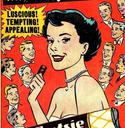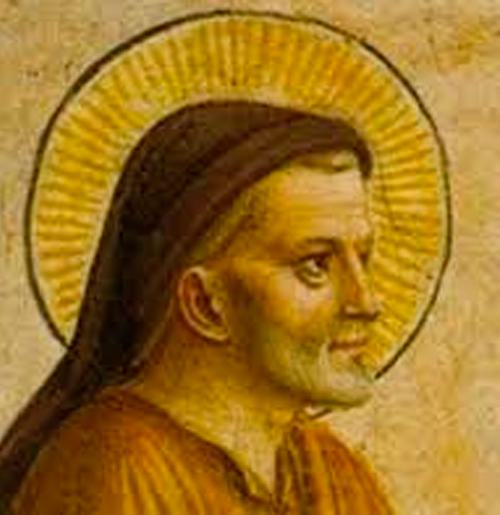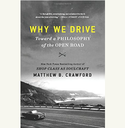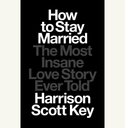The collapse of marriage in the developed world is happening faster than many believed possible. Civil marriages exceed religious ones, and both are in steep decline. In Italy, the heartland of Catholicism, where the largest religious institution on earth might be expected to have some influence, there are only 3.6 marriages a year for every thousand inhabitants, compared to 4.7 for the European Union as a whole – in the wealthy parts of Italy the numbers are even lower. Clearly most couples now do not get married. Single parents, especially single mothers, are commonplace. Given that it is hard enough for a stable, loving couple to bring up a child, or children, the difficulties faced by single parents are formidable.
The decline of fatherhood – and in our understanding of what fatherhood means – is only one part of this picture, but it is an important one.
For this reason I bow my knees before the Father, from whom every fatherhood in heaven and on earth is named, that he may grant you by his power according to the riches of his glory to become mighty through his Spirit in the inner man, and that Christ may dwell in your hearts through faith (Eph. 3:14).
What is a “father”? According to the Christian understanding, “father” means something like “originator” or “source.” This is why the Letter to the Ephesians describes the heavenly Father as the only true father, because all things begin with him. In the biological act of “fathering,” the seed comes from the father to the mother, making her fertile. But this is only a faint shadow, not sufficient to explain the notion of fatherhood. In fact the destruction of the family and of fatherhood is bound up with reductions like these.
The recovery of fatherhood is not merely a political and sociological challenge, to be met by strengthening the legislation that keeps families together, deters separation, and insists that a man takes more responsibility for his children (whether he be married or not). What needs to be recovered is a vision, a sense of responsibility, something the philosopher Gabriel Marcel in his book Homo Viator (1951) called a “creative vow.”
The father is more than a biological instrument above all when he is prepared to consecrate himself for a role that transcends the physical. He gives of himself biologically to the mother when the child is conceived; but he gives of himself spiritually when he accepts a continuing and indeed eternal responsibility for the gift that God gives him in return – the gift of the child whom he did not fashion and whose destiny he cannot determine or control.
This fatherly vow or consecration will also deepen and consolidate the vow of marriage itself, for fatherhood (like motherhood) blossoms within the sacramental garden of marriage, calling from the man a love that nothing else could reveal. Thus we see the eternal divine Spirit indwelling both, deepening both their differences and their unity.
No longer the primary breadwinner, today’s father is not even necessarily the one who engendered his own child, thanks to the wonders of IVF. Technology, which already in the 1960s severed the connection between sex and reproduction, now promises to separate gender from parenthood entirely. It is hardly surprising that so many fathers are missing from the landscape of the contemporary family.
G.K. Chesterton lived through the early stages of the feminist movement. He poured scorn on the tendency of suffragettes and aspiring secretaries to glorify the world of work outside the home, in the office and factory. He perceived the world of the family as infinitely more exciting, more adventurous, and more challenging. The home may be physically small, but the drama and social influence of life in the home is far greater than that of the world outside. But at the same time, he perceived that the feminists were rejecting the home and going out to work and in search of votes for a reason. “The generation in revolt fled from a cold hearth and godless shrine.” The Victorians, far from upholding or exemplifying Christian “family values,” had already betrayed that tradition. The home that had once, perhaps, been larger inside than out had become a prison, from which it was understandable and inevitable that woman should want to escape.
The betrayal began long before, with the dominance of the pragmatic mercantile mentality. When the only values were those that could be counted, and the only truth was a truth that worked, when knowledge and authority had become equated with mere power, then the romance and adventure of making a home and a family together had given way to the idea of a marriage of “convenience.” This so-called marriage amounted to little more – and it soon amounted to much less – than a business contract between consenting adults, for the exchange of certain services and the amalgamation of property. With marriage so degraded, the ideal held in contempt, broken marriages started to become the norm rather than the exception.
Today, statistics seem to show that children who grow up in a fatherless family are considerably more likely to go to prison, experience depression, become pregnant as teenagers, or be abused. And yet many voices insist that because men and women are “equal” it must be possible for women to “father” and men to “mother.” Of course whether either can do both at the same time is another question. In any case this is to confuse equality with sameness. The debate on “genderless parenting” has been stirred up recently by Andrea Doucet’s 2006 study Do Men Mother?, which discovered persistent, significant differences between mothering and fathering. (The book is reviewed here.)
The present issue of Humanum is intended to draw attention to this important aspect of the ongoing collapse of the family. The “father” goes missing long before he physically disappears from the scene. He starts to disappear as soon as he forgets the vocation that is his. (We have no "witness" piece in the current issue, but PLEASE READ this extract from the play by Karol Wojtyla/ Pope John Paul II, The Radiation of Fatherhood.)
Please also view Jennifer Lahl’s Anonymous Father’s Day documentary.
You may also be interested in this article on Fatherhood and Truth, which includes some remarks on the priesthood, from Second Spring.
Stratford Caldecott
March 2013
Stratford Caldecott MA (Oxon.), STD (hc), the
founding Editor of Humanum,
was a graduate of Oxford University, where he was a research fellow at St
Benet's Hall. A member of the editorial boards of the international Catholic
review Communio, The Chesterton Review, Magnificat (UK), and Second Spring, he
is the author of several books including Beauty for Truth's Sake, Beauty in the Word, and The Radiance of Being.



